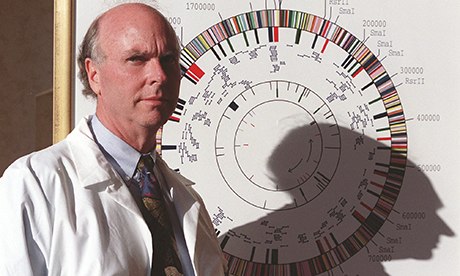
Breaking News
 Tucker shares 'backroom' info about brawl between him and Israel First crowd…
Tucker shares 'backroom' info about brawl between him and Israel First crowd…
 Why Isn't There a Cure for Alzheimer's Disease?
Why Isn't There a Cure for Alzheimer's Disease?
 US Government Revokes 80,000 Visas
US Government Revokes 80,000 Visas
 OpenAI CEO Sam Altman served legal papers during speech in dramatic on-stage ambush
OpenAI CEO Sam Altman served legal papers during speech in dramatic on-stage ambush
Top Tech News
 Goodbye, Cavities? Scientists Just Found a Way to Regrow Tooth Enamel
Goodbye, Cavities? Scientists Just Found a Way to Regrow Tooth Enamel
 Scientists Say They've Figured Out How to Transcribe Your Thoughts From an MRI Scan
Scientists Say They've Figured Out How to Transcribe Your Thoughts From an MRI Scan
 SanDisk stuffed 1 TB of storage into the smallest Type-C thumb drive ever
SanDisk stuffed 1 TB of storage into the smallest Type-C thumb drive ever
 Calling Dr. Grok. Can AI Do Better than Your Primary Physician?
Calling Dr. Grok. Can AI Do Better than Your Primary Physician?
 HUGE 32kWh LiFePO4 DIY Battery w/ 628Ah Cells! 90 Minute Build
HUGE 32kWh LiFePO4 DIY Battery w/ 628Ah Cells! 90 Minute Build
 What Has Bitcoin Become 17 Years After Satoshi Nakamoto Published The Whitepaper?
What Has Bitcoin Become 17 Years After Satoshi Nakamoto Published The Whitepaper?
 Japan just injected artificial blood into a human. No blood type needed. No refrigeration.
Japan just injected artificial blood into a human. No blood type needed. No refrigeration.
 The 6 Best LLM Tools To Run Models Locally
The 6 Best LLM Tools To Run Models Locally
 Testing My First Sodium-Ion Solar Battery
Testing My First Sodium-Ion Solar Battery
 A man once paralyzed from the waist down now stands on his own, not with machines or wires,...
A man once paralyzed from the waist down now stands on his own, not with machines or wires,...
Craig Venter's 'Digital-to-Biological Converter' Is Real

Craig Venter thinks that sending living organisms to other galaxies on spaceships is "definitely" science fiction. It's much more realistic, he thinks, to print them on-site using digital representations of their genome. He calls this "biological teleportation."
Essentially emailing medicine and organisms back and forth between Earth and other planets is just one of the far-future implications of a device developed by Synthetic Genomics, a company founded by Venter, a superstar geneticist and biotechnologist. The tabletop device is called the Digital-to-Biological Converter, or DBC for short, and without a fancy box it looks like a bunch of complicated mechanical crap laid out on a table. The device accepts digital representations of DNA over the internet and reconstructs them on the spot using the chemical building blocks of life—adenine, cytosine, guanine, and thymine. You might recognize their initials from the movie Gattaca.



